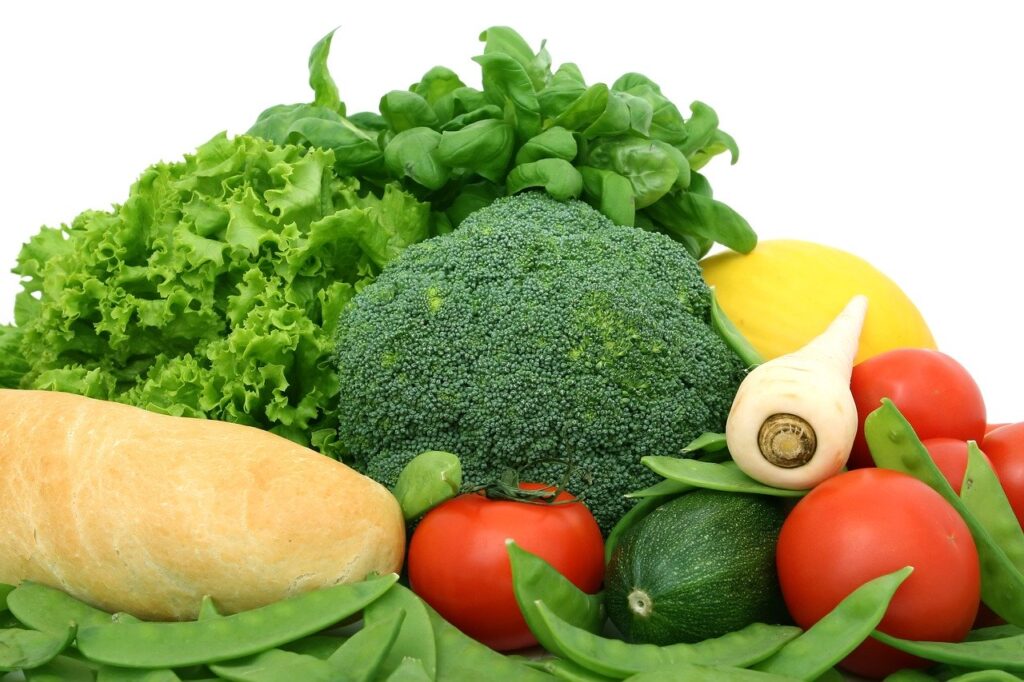The best way to improve your health is to eat more healthily and to get more exercise – this is often repeated, but do we even know what eating healthily is anymore? With the vast array of weight loss diets around, and the numerous supplements available, does anyone even care if anything makes organic food better for you?
Organic foods are becoming more prevalent and showing up in all sorts of stores from farmer’s markets to big box retail stores. While organic foods are often purchased at a higher cost due to the health claims that are tied to these food items, many question whether organic foods are healthier than other food options. There is still much debate on this and many different factors that impact the decision of whether or not you should purchase organic food or stick with other forms of food. Many of these factors are hotly contested as well as the reasonableness of defining what organic food is.
What Is Organic Food?
Organic food is food that is grown without the use of pesticides, irradiation, and other artificial substances. Having said that, the designation of what is organic will vary significantly from country to country and, generally speaking, food that is grown by an individual is not considered to be organic, even if no pesticides are used to grow it, due to the lack of regulation surrounding it. While organic food may need to be defined when it is resold, a looser interpretation of what is organic involves food grown without using pesticides, artificial hormones, and sometimes not using genetically modified ingredients as part of the growing process.
Differing Views on Nutrition
The world is very split on reaching their nutritional needs. While portions of the third world experience problems receiving a minimum number of calories per day, portions of the first world nations often suffer from the health side effects of too many calories which can result in being overweight, having heart diseases, and other weight-related illnesses like gout.
People in each of these extremes have differing views on the food that they consume. One group is often concerned with increasing their calories while the other is looking to reduce their calories and is less concerned with having nutritional shortfalls.
Studies, to date, have not shown that there is a difference between the nutritional content of organic and non-organic food. In other words, foods will contain the same calories, nutrients, and vitamins whether they are organic or not. As such, the lack of additional nutritional benefits that first world nations receive from organic food is not the primary concern for eating it, while in third world nations the increased cost, lower yield, and lack of additional calories would be a concern. Understanding the perspective of each group will help to better analyze if organic food is healthy for individuals and there are likely different responses to this question depending on who you are.
While many will indicate that organic food may not have added health benefits or ill health effects, if organic food reduces the quantity of food that you consume due to lower yield and higher cost, this can have positive or negative health effects depending on whether you are over or underweight.

Long-Term Impact of Pesticides and Hormones
The major health benefit that many people cite as relating to organic food is not due to the improved nutrition of food, but rather in the absence of substances like pesticides and added hormones that can harm your health. The challenge for scientists attempting to understand how damaging these substances are, and therefore how beneficial organic alternatives are, is the lack of consensus on the long-term impact of these substances.
Some pesticides have been banned both for the negative impact it has on the environment as well as for the chance that they will prove to be cancerous to those who eat foods treated with these pesticides. While the other alternative pesticides are deemed to not have the same ill effects on your health as the banned ones, science often identifies new risks and problems as it learns more about the impact of these substances and chemicals on the human body. While organic food has a longer track record for judgment, non-organic food as treated with varying pesticides and hormones have a shorter track record and may prove to be harmful to our health.
Giving hormones to animals who are then consumed (directly or indirectly (cheese or milk) may also impact your health, particularly impacting children during their growth stages. The impact that this has and how positive or negative is unknown but may be linked to rising rates or allergies, hormonal imbalances, and cancer. Many believe that hormonal problems lead to imbalances in their energy levels as well resulting in hyperactivity or sedateness.
Many people understand this and decide to only eat organic foods as a result. But is organic food better? While organic foods may not ultimately be healthier, they come with lower health risks and can dispel the concern that many have for the ingredients that can potentially impact our long-term health.
Varying Impact by Food Group
Of course, the impact that the pesticides and hormones have on food will greatly vary based on the food item itself. It is often considered to be safer to eat non-organic foods with thicker skins that you don’t eat, like a pumpkin or gourd, than fruits or vegetables with thinner skins that may more easily absorb the chemicals and pesticides like berries or peaches.
While organic food is not thought to be unhealthy, unless it is leading to lower calorie consumption for those who are lacking in calories, the health benefits of eating only organic are somewhat unproven, partly as non-organic foods have a shorter history. Organic eating is a safer way to eat healthily and many believe it can greatly enhance your long-term health and energy levels.
